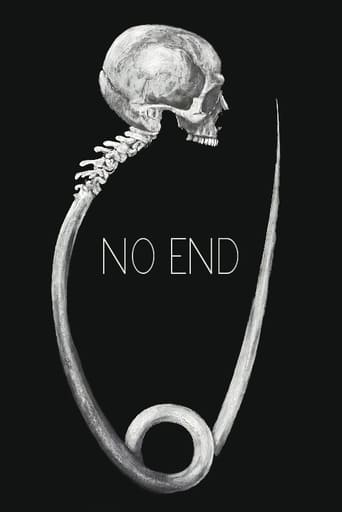himanshutri
The story depicts a lady's dealing with grief of her husband's sudden demise. How a lady makes many efforts to come to terms with the reality. A story told with honesty and sincerity and without any judgement.The brilliance of both the direction and the acting is seen in its simplicity. Many intense montages are shown with no suggestions (no exaggerated expressions and lilts in the background musical score). The director leaves that to be felt by the audience directly. That respect given to the audience is uncommon in today's mainstream Hindi cinema.The portrayal of grief and despair is intense and direct. The storyteller offers no balm that doesn't exist. How a store starts and ends is of course a raconteur's choice, yet their effort to do so non-judgementally is authentic-and original.The movie plot develops in the backdrop of Solidarity movement in Poland. The political background is delicately woven which enriches-and doesn't disturb-story's progress.Watch the movie in a positive frame of mind to appreciate the finnesse of the story.So many great stuff to absorb and reflect beyond Hindi and English literature and cinema.
Sindre Kaspersen
Polish screenwriter and director Krzysztof Kieslowski's fifth feature film which he co-wrote with his long-time collaborator Krzysztof Piesiewicz, their first collaboration, is a Polish production which was produced by Ryszard Chutkowski who worked as a producer on several of Krzysztof Kieslowski's films. It tells the story about Urszula, a Polish translator who lives with her son in Poland during the early 1980s when the regime had declared martial law and did everything in their power to repress and destroy the first non-communist party "Solidarity". Urszula has recently lost her husband Antek who was a lawyer and is struggling to work out her grief while trying to raise and take care of her young son by herself. When contacted by her late husband's former client Darek Stach who is still concerned about his case, she tries her best to help him, but Urszula still longs for her deceased husband and no matter what she does he is constantly on her mind.Krzysztof Kieslowski's last politically prominent film from 1985 where he began to move his focus away from the political war that had marked his native country for the last two years, merges social realism with spirituality and draws a finely tuned portrayal of a grief-stricken woman possessed by her departed husband's spirit. This subtly paced and character-driven fictional tale which examines themes such as loss, grief, interpersonal relations, family relations and love, is as much of a heartbreakingly romantic and affectingly atmospheric love-story as a political and ethical drama.Acutely and precisely directed, this visually remarkable film is notable for it's naturalistic milieu depictions, the stellar cinematography by Polish cinematographer Jacek Petrycki, the ardent production design by Alan Starski and the poignant score by one of Krzysztof Kieslowski's most regular collaborators Zbigniew Preisner, who he worked with for the first time on this film. A profoundly well-written, intimate and internal mystery with a moving and understated acting performance by Polish actress Grazyna Szapolowska in an emotionally complicated role.
denis888
This is a real pleasure to both eye and mind. The untimely demised Mr. Kislowski was a true genius of Polish cinema and with this excellent film he again proves it. The film is divided into two genres, if it may be said so - one is a mystic one, where we see the ghost of a dead Warsawa lawyer, Antek, when he watches his widow and his little son and their life from the ether and the only creature that sees him is a big black dog. The other plot is a deeply tragic and serious story about 1982's Poland, when the anti-Communist political movement called Solidarnosc (the Solidarity) was banned, the country suffered curfews, arrests and political trials.The widow of Antek, Ulla, is a famous translator, and she is devastated with her husband's death. She starts to help the wife of a man who is in prison, who was in Solidarnosc's actions and who was Antek's client. So, now that Antek is dead, another lawyer, his teacher, an elderly man takes the case, and his young assistant also helps him. The story tells us about the small and still tragic events of their lives. We see the unbent Solidarnosc activists, who meet secretly in their shabby apartments. We see Ulla's soul struggle when she is rushing from one extreme to another, having a quick date with an American, having help from the Solidarity people, having troubled relations with Antek's friend. We see and feel her pain, her mute suffering and her constant plea for her late husband. Finally, when the case is won, and that young man is released right during the trial, Ulla decides to take her life and finally join Antek. The cast is superb, we see young Marek Kondrat among others, we see other great actors and we feel the same pain they all suffer in those bleak, cold, merciless days of repressions and purges. A serious, earnest film for all who think.
paul2001sw-1
Krystoff Kieslowski is today best known for his last four films, made wholly or partly in France, which in some ways is a shame, as while these movies are not without merit, they are outshone by the massive brilliance of his earlier, Polish work. Kieslowski was, of course, the greatest visual poet of communist architecture; and there's also something magical about the way he communicates the most intense emotion behind the facade of Slavic stoicism (witness, for example, in this film, the scene where the car is taken by the police). And also there was the subtext of the political beneath the personal, never more apparent than in 'No End', set (and, courageously, made) in the aftermath of the impact of the Solidarity movement on Polish society. In the face of civil unrest, the government had declared martial law, hoping to stave off a "friendly" Russian invasion; but system had lost confidence in itself, and had already effectively negotiated its own demise by the time the collapse of the Berlin wall finally cast it into oblivion. It's in this intermediate period, where normality intermingled with fear, that 'No End' unfolds, a drama that combines moral complexity and human sympathy in equal measure.The first words of dialgoue in this film are "I died". Billy Wilder had planned to start 'Sunset Boulevard' in a similar manner, but the suits didn't like it and that film makes less sense as a result of the changes they demanded. More recently, films like 'Truly, Madly, Deeply' and 'The Sixth Sense' have repeated one idea explored in 'No End', that of the ongoing relationship between the living and the dead. But whereas both of those films are weighted down by obvious sentimentality, the opening speech in 'No End' is simple, disturbing, painfully real and yet leads naturally into something far more than a ghost story, a tale in which there is no right and wrong, but in which the mixed motives of the characters only illuminate their humanity.Kieslowski is famous for his collaboration with Zbigniew Priesner, who wrote wonderful scores for this film (and all it's successors); but watching it, one is also struck by how well he used silence. He also had a talent for finding the most wonderfully expressive faces: the lawyer (Aleksander Bardini), the wife (Grazyna Szapolowska) and the client (Artus Barcis) all went on to appear in his 'Dekalog'. It's impossible to imagine a better actor than Bardini for his role; while Szapolowska appears more beautiful than any Hollywood starlet precisely because of the complete lack of glamour with which she is shot; her portrayal of a woman holding things together in the face of an unconquerable grief is wonderful and immensely sad.There are so many moments of brilliance in this film, almost of all them unflaunted; the moment where the woman's son interrupts her phone call; the tiny flinch induced when a door closes behind her, the way that light floods a previously darkened room; the speech of introduction uttered by the lawyer; Kieslowski constantly finds the subtlest of ways to shed light on his subjects. This is a ten star film, made by a master, grounded in its era but which speaks of so much more. Now released on DVD, it has to be seen.


 AD
AD




